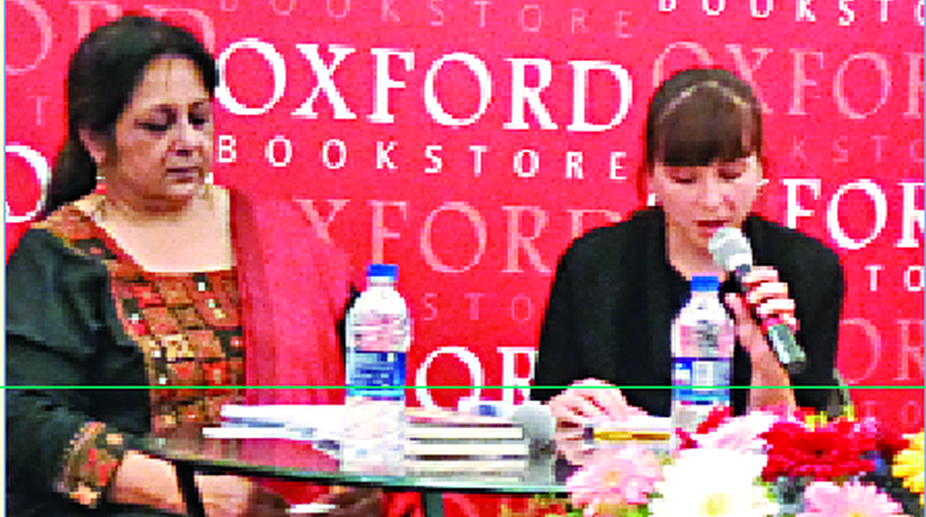Humans always need somebody to regulate their behaviour but then who regulates the leader? Is there a need for political institutions? If yes, then what should be their nature? How do we organise society in the face of a refugee influx? Are we living in a world where the trade of goods is becoming freer while the passage of people is becoming more difficult?
Shift Sleepers by Dorothy Elmiger, the award-winning ((Hermann Hesse Prize, 2014) Swiss author, raised these thought provoking questions while discussing the various realms of her book with Kavita Panjabi, professor, Jadavpur University, in its launch event at Oxford Bookstore, Kolkata.
Advertisement
Elmiger admitted that she didn’t have the answers to these questions, neither as a human nor writer. But she did feel the urgency to start somewhere. Considering the fact that a lot of what is happening in society will manifest itself through language, she began to write this book, structuring it in the form of a different kind of conversation. “If I knew the answers I would have gone into politics immediately. But since I don’t, I thought it was still important to ask these questions,” said Elmiger.
The book reads as a collage of voices with the narratives interweaving, interrupting and overlapping with one another. “It is not so important to always know who is talking at the moment,” the author suggested.
This short work is not only a courageous contribution to the immigration debate, but really thoughtful, given that the author dwells from Switzerland, which didn’t have to face the kind of anti racist-challenges like Africa or India because it wasn’t really involved in direct colonisation.
The protagonists in Shift Sleepers speak to each other and the story advances with their conversations. They include a translator, a logistics expert who has become an insomniac, a writer, a journalist and a young woman who is travelling. Their interest and concern for the other person is what bind these characters together. “I felt that if I want to be true to what I am thinking about, I have to refuse to answer the concrete questions about the characters like ‘Where you’re from?’ or ‘Why you’re here?’. I just wanted them to be recognised for their stories,” explained Elmiger.
The logistics expert is an image of sleeplessness. We generally tend to have certain filters that society imbibes in us as we grow up. These filters work as a defence mechanism continuously telling us that neither can we change everything that we read in the newspaper nor take responsibility of every injustice that is happening around us. Thus from childhood we grow a notion that not everything must affect us. But in this story, the logistics expert is no longer able to abide by this mentality. He has the capability of distinguishing the right from wrong and feels that everything is affecting him and that he is connected to the fates of the people around him. He is moved by his surroundings to such a point where everything seems blurred making him lose the ability to sleep.
When asked, why choose a male narrator for the story, Elmiger said that it took her a while to figure out what the narrator should look like. Earlier when she started writing in the first person, there was only one character, the logistics expert. “I was putting my words in the mouth of the logistics expert who is a man, but then he and I got so stuck in the turmoil going on inside my head that I realised that there needs to be other characters to lead this conversation ahead. That is when I decided that the logistics expert has to become one of several,” she said.
The first two words of William Shakespeare’s Hamlet, “Who’s there?” becomes really important in Shift Sleepers. Elmiger said that she was reading Hamlet while working on the book and could relate those two words instantly with her story. Given the conversational structure of the book, “Who’s there?” becomes an essential question that keeps being asked repeatedly and randomly. “For me it is a very multi-layered question because at times it also points towards a refusal to answer the question, thus bearing a mystery about it,” she said.











